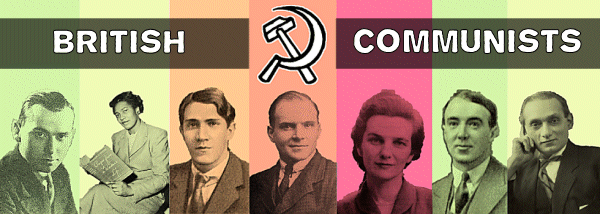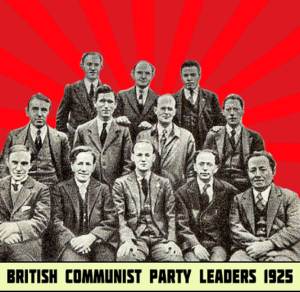
The Communist Party must be the only party that the ruling class admits to having tried to smother at birth. Its leaders and activists have been harassed en masse, arrested, jailed and given hard labour. The party has been spied upon, its offices bugged and raided and its propaganda confiscated or destroyed.
Christopher Andrew’s history of MI5, Defence Of The Realm, demonstrates the extent of the state’s attempts to subvert this democratic workers’ party. Half its pages are used to outline how far the ruling class was prepared to go to achieve its aims. But their assaults failed.
Today we are yet again faced with a most vicious, sustained attack on our class and movement. An understanding of the past and a study of problems faced by previous generations of militants – and how they dealt with them – is vital. This is especially so for the many young people becoming active for the first time.
 Communism did not start with Karl Marx
Communism did not start with Karl Marx
Communism did not start with Karl Marx, or with the Russian Revolution of 1917. In Britain, a rich historical seam of communist ideas dates back to the Middle Ages and beyond. The desire for a future based on peace, cooperation, community and common, wealth has long inspired the peoples of England, Scotland and Wales.
At times of great crisis, such as the Peasants’ Revolt (1381), the English Revolution (1640), and the Chartist uprisings of the 1830s and 1840s, communist ideas have come to the fore, voicing the hopes of working people.
The Communist Party continues that living, revolutionary tradition. It is a product, first and foremost, of the British labour movement. Its roots lie deep in Britain’s trade unions, socialist societies and in other working class organisations.
OUR HISTORY
When founded in 1920, the Party brought together militant socialists and trade unionists who understood the need for a revolutionary change in society. They were inspired by the world’s first workers’ state, Soviet Russia, led by VI Lenin. But they were also repelled by the mass slaughter of the 1914-1918 Great War. Britain needed a party that would fight capitalism and imperialism, unlike the labour leaders who preferred collaboration and surrender.
Since then, the Communist Party has been in the frontline fighting for the interests of the working class. Despite its small size and the imprisonment of its leadership, it played an outstanding role in the 1926 General Strike.
Since its formation in 1920, Britain’s Communist Party has insisted that working people can build a new type of society and a better world……
The starting point is the need to unite in our labour movement and progressive organisations to fight for the interests of working people against capitalist exploitation, crisis, fascism and war. The struggle for a left-wing programme of progressive and democratic demands can take working people onto the offensive. Inroads can be made into the wealth and power of the big business monopolies and the state apparatus which defends their system.
A democratic, anti-monopoly alliance can be built through action and solidarity, led by the organised working class. But to change society fundamentally, such a movement would have to take political power and use it replace exploitation by social ownership and economic planning. A massive extension of accountability and participation throughout society would begin to create a real democracy.
A left government in Britain based on mass activity and a Labour, socialist and Communist majority could pursue a genuinely independent foreign and defence policy.- Our principles of solidarity, justice, democracy and environmental security would become the new ‘common sense’.


 Communism did not start with Karl Marx
Communism did not start with Karl Marx